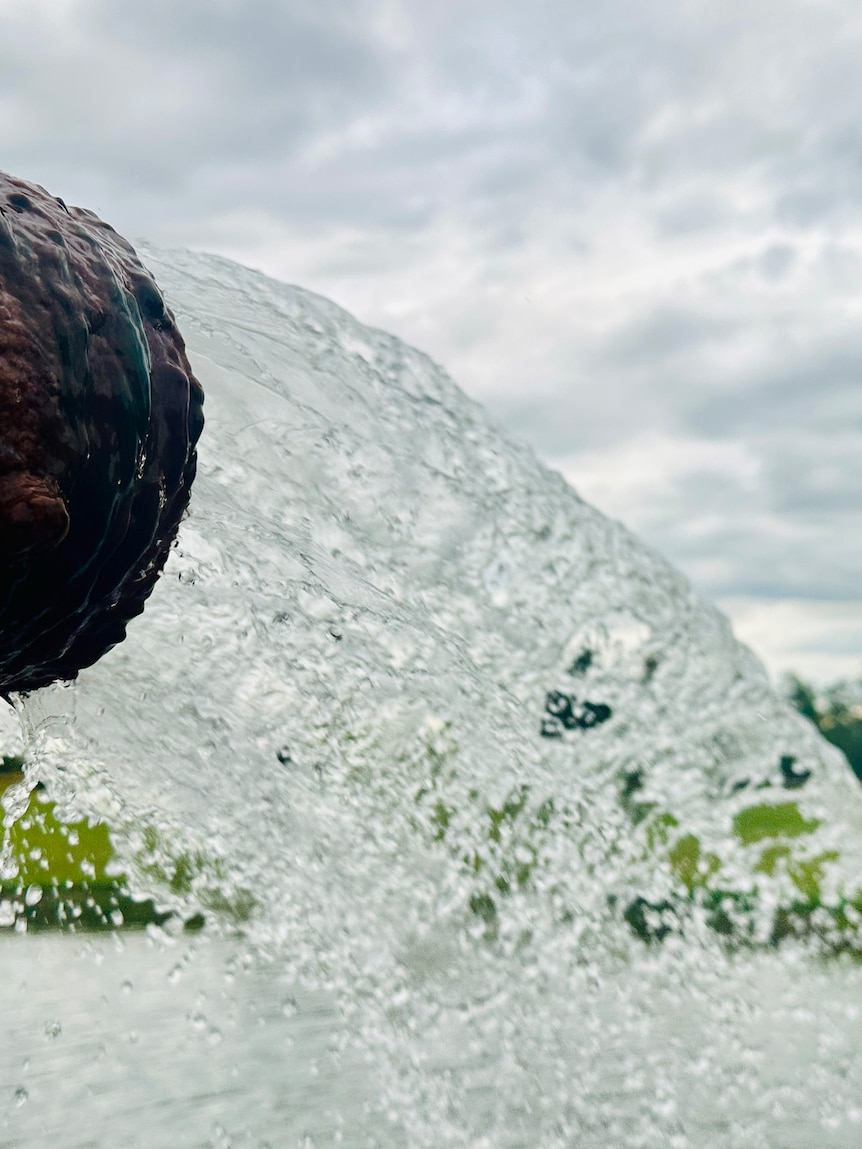Eyre Peninsula’s four-billion-dollar economy, and the liveability of the region, could be significantly impacted by water restrictions, which may come into effect in 2026, due to ongoing water supply issues.
While the region waits for construction to start on a planned – but not yet confirmed – desalination plant to secure the region’s water security, Uley South basin remains EP’s last major groundwater source.
The basin, which is leased to SA Water, supplies about 75 per cent of the region’s water for homes and industry.
Investigations by the Department of Environment and Water, presented to the Eyre Peninsula Landscape Board earlier this month, revealed the basin’s water level had dropped to an alarming level.
EP Landscape Board general manager Jonathan Clark says climate change is a major factor, and while water levels have been declining “over the decades”, the process has accelerated due to rising salt levels.
“It’s very much a current and urgent consideration,” he said
“The groundwater modelling that’s been undertaken indicates if we continue to extract at the current levels, that the seawater … will move into the aquifer.”
Other southern groundwater basins also in trouble
Figures from the Uley Wanilla and Lincoln South basins, also leased to SA Water, which use it for peak periods, revealed the same trends.
Mr Clark said the situation meant the board had voted to start a revised water allocation plan for the region’s basins six months early, which would set out rules for managing the resources for the next decade.
He added SA Water would have to cut its current extractions from Uley South by up to 50 per cent.
“[It is] is the jewel in the crown. It’s one of the last basins standing,” he said.
“The board can’t stand by and watch this [water depletion] happen … we will be amending components which will result in less water available from licences such as SA Water to extract.”
Desal plant proposed at Billy Lights Point
SA Water general manager of engagement David Coombe says it is “about to submit” a development application for a desal plant at Billy Lights Point which would deliver water by mid-2026 and take the pressure off the basins.
Mr Coombe acknowledged the chance of further delays to the project — first raised by the peak water authority in 2008 — which meant it was urgently reviewing its water security response plan.
He says that changes could include staged water restrictions, which would start with major projects — such as the new Andromeda mine in Poochera.
“We need to look at all of those options in terms of reducing the stress on those underground basins,” he said.
“We will have to have some of those difficult conversations with larger developments.
“The reality is up until we have that desalination plant in place, we won’t have the water available to be able to supply new growth on the peninsula.”
He added the restrictions would be staged but could ultimately impact households.
Regional Development Australia Eyre Peninsula chief executive Ryan Viney says the situation has the potential to threaten the region’s economy as well as its future prosperity.
“Water is the biggest economic enabler and, without it, many of these projects that are happening across the region simply won’t be recognised,” he said.
“Securing a non-climate dependent water source is just critically important.”
He is disappointed that the desal plant, first discussed by SA Water 16 years ago, is still not built — or even confirmed.
“‘We’ve known since 2008 we’ve needed to get this in place,” he said.
“It’s frustrating we are at the 11th hour now and we still haven’t got a water source secured.”
West Coast groundwater supplies also critically low
Elliston has relied on its own groundwater source since 2008, but mayor Andrew McLeod says the basin’s level is also declining.
“The time in which to enact a solution before the basin is no longer viable is unknown,” he said.
While SA Water is in discussion to extend its pipeline to the town, nothing is confirmed.
Mr McLeod said it was paramount a new water source was secured before it had to resort to another option, such as carting water to Elliston township.
Lower Eyre Peninsula farmer John Hyde, 83, whose family owned the Uley South basin from 1847 until 1961, blamed the region’s current predicament on years of mismanagement of the basins by various government authorities.
In 2013, My Hyde fronted a state parliamentary inquiry into water supplies in EP and raised concerns about mismanagement of the basins and future implications.
“The [authorities] … have been told for years and years what will happen,” he said.
“Yet these experts were telling public and the boards and the government that everything was all right.
“All the things I said in that submission to the government and the advisers that were supposed to be managing the basins, all have happened, and now it’s all fallen in a big hole and they have done nothing.”
Posted , updated




